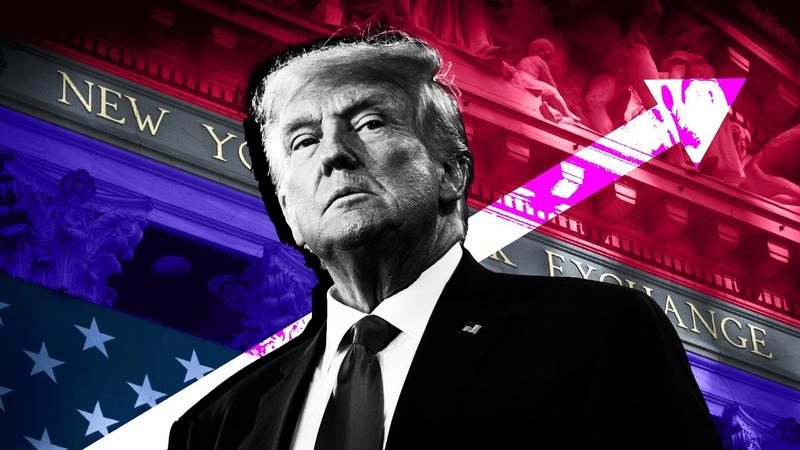Published 18:38 IST, November 6th 2024
Donald Trump as US President: Advantage India over China?
Given Trump’s track record of championing strong ties with India and his shared strategic interests with New Delhi, Modi's statement signals confidence.

As Donald Trump clinches victory in the 2024 US presidential election, all eyes are on how his return to the White House will reshape global geopolitics, particularly the relationship between India and the United States. Trump, who has repeatedly expressed admiration for Indian Prime Minister Narendra Modi , is expected to further solidify the growing strategic partnership between the two democracies.
Prime Minister Modi congratulated Trump, taking to X (formerly Twitter) to express his enthusiasm for the future of India-US relations. Modi said, "I look forward to renewing our collaboration to further strengthen the India-US Comprehensive Global and Strategic Partnership. Together, let’s work for the betterment of our people and to promote global peace, stability, and prosperity."
Given Trump’s track record of championing strong ties with India and his shared strategic interests with New Delhi, Modi's statement signals confidence in the future of the bilateral relationship. Trump’s admiration for Modi, which he has vocalised on numerous occasions, indicates a continuation of this alliance, which has already bloomed in areas ranging from defence cooperation to trade.
Trump's "America First" Agenda: A Challenge for China
Trump’s victory is also likely to have significant ramifications for China. Throughout his first term and his 2024 campaign, Trump has been unyielding in his stance against Beijing. His rhetoric has often been sharp and confrontational, particularly concerning trade, intellectual property, and what he describes as China’s exploitation of the U.S. In 2012, Trump suggested that "the concept of global warming was created by and for the Chinese to make U.S. manufacturing non-competitive," a sentiment that underlined his suspicion of Chinese motivations. His criticism intensified during his presidential tenure, with remarks like, "China is letting us down in that they have not been buying the agricultural products from our great farmers that they said they would," referring to trade imbalances and broken agreements.
In 2016, Trump famously said, “We can’t continue to allow China to rape our country,” expressing frustration with the U.S. trade deficit with China and what he perceived as unfair trade practices. His administration responded by implementing tariffs on Chinese goods and pushing back against Beijing’s growing economic influence.
His aggressive stance against China is unlikely to soften in a second term. "China’s pattern of misconduct is well known. For decades, they have ripped off the United States like no one has ever done before," Trump said in 2020. Trump's critique extended to the handling of the COVID-19 pandemic, where he referred to the virus as the "Chinese Virus" and accused China of unleashing the pandemic on the world.
Trump's rhetoric has often focused on making China "pay" for what he sees as unfair economic practices. "Hundreds of billions of dollars a year were lost dealing with China, especially over the years during the prior administration," Trump claimed in 2020, underscoring his belief that China has been a major economic adversary to the United States.
Implications for Global Trade and Security
Trump's approach toward China is expected to have a significant impact on global trade dynamics, with implications for countries like India that find themselves in competition with China for regional influence. A tougher U.S. stance against China could benefit India, particularly in terms of trade, defence, and technology cooperation.
India, which has been strengthening its defence ties with the U.S. in recent years, stands to gain from Trump's more transactional approach to foreign relations. Under the "America First" mantra, Trump may prioritise partnerships with like-minded nations, including India, in efforts to counterbalance China’s influence in the Indo-Pacific region.
In addition to economic benefits, India could also find new opportunities in its pushback against China, particularly over issues such as the China-Pakistan Economic Corridor (CPEC) and territorial disputes in the South China Sea. With Trump’s administration likely to continue supporting India’s regional security concerns, New Delhi could see further strategic gains.
China Faces a Growing Challenge
For China, Trump’s second term presents a growing challenge. His "America First" policies will likely intensify the trade war with Beijing, further complicating the already contentious relationship between the two economic giants. Trump's call for a tougher approach to China could extend to a range of issues, including technology, human rights, and military presence in the Indo-Pacific region.
Moreover, Trump’s previous comments on China’s influence in international trade and diplomacy suggest that his administration will not back down from pressing Beijing on issues related to intellectual property theft, market access, and global trade imbalances. This could mean continued pressure on China from multiple fronts, as the U.S. seeks to decouple certain aspects of its economy from Beijing's growing global presence.
For both India and China, Trump’s victory signals a period of heightened geopolitical manoeuvring, where economic, military, and diplomatic strategies will play a significant role in shaping the next phase of global power dynamics.
Updated 18:38 IST, November 6th 2024